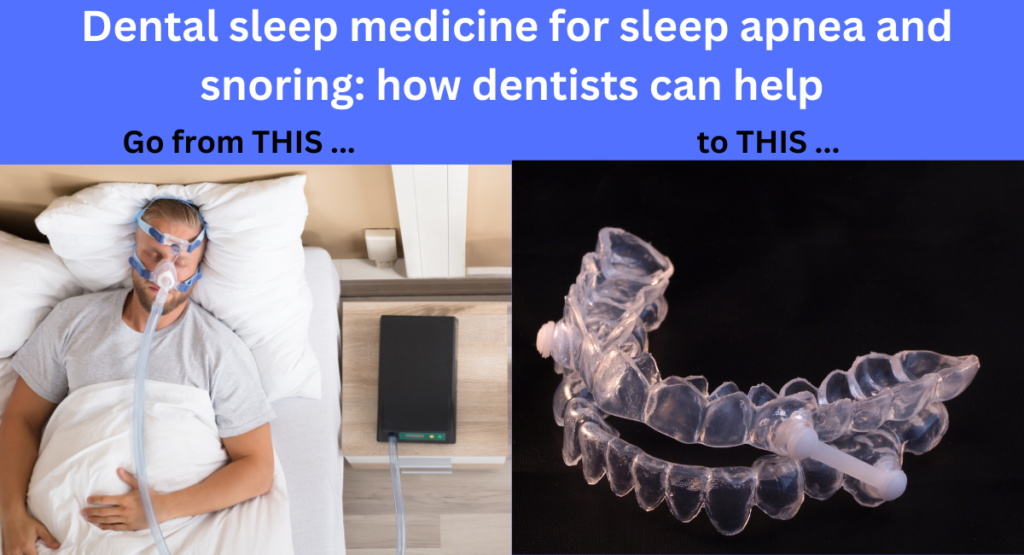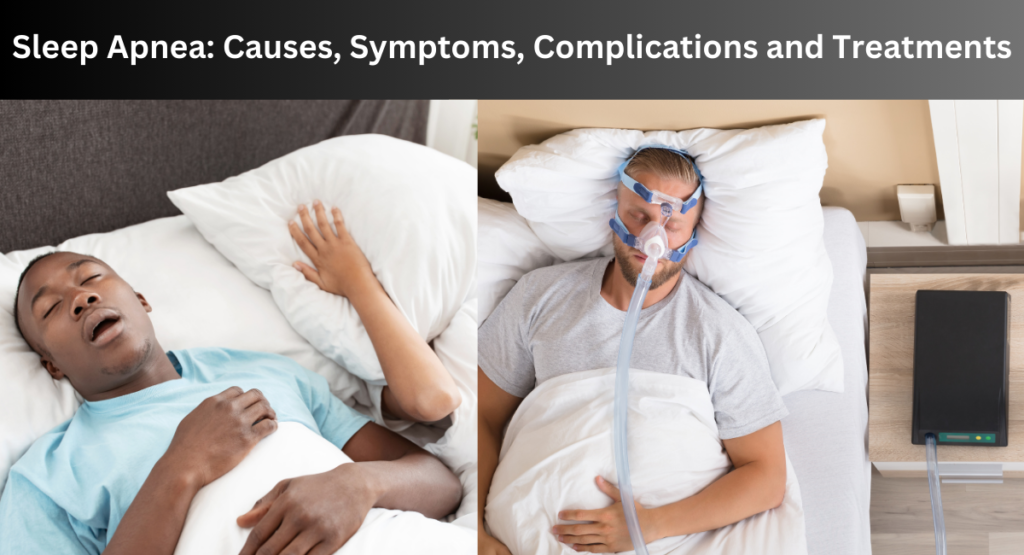
Dental sleep medicine for sleep apnea and snoring how dentists can help
Sleep apnea and snoring are common issues that can disrupt not only your sleep but also your overall health and quality of life. What you may not realize is that dentists can play a crucial role in addressing these concerns. Dental sleep medicine is a specialized area within dentistry that focuses on the treatment of sleep-disordered breathing, including snoring and sleep apnea, through the use of oral appliances. In this article, we will delve into the world of dental sleep medicine, exploring what it is, how it works, its benefits, and more.
What is Dental Sleep Medicine?
Dental sleep medicine is a branch of dentistry that focuses on the diagnosis and treatment of sleep-related breathing disorders, such as snoring and obstructive sleep apnea (OSA). OSA is a serious medical condition in which breathing repeatedly stops and starts during sleep. It can lead to a number of health problems, including high blood pressure, heart disease, stroke, and diabetes.
Dental sleep medicine dentists use oral appliance therapy to treat OSA. Oral appliances are custom-made mouthpieces that patients wear during sleep. The appliances work by positioning the lower jaw forward, which helps to keep the airway open.
What is Sleep Apnea?
Sleep apnea is a serious sleep disorder characterized by repeated interruptions in breathing during sleep. These interruptions, known as apnea, can last for seconds to minutes and may occur dozens of times per hour.
Types of Sleep Apnea (SA)
There are three types of SA:
- Obstructive sleep apnea (OSA): This is the most common type, caused by a blockage in the upper airway and/or the relaxation of throat muscles.
- Central sleep apnea (CSA): In which, airway is not blocked but the brain fails to signal the muscles that controls breathing.
- Mixed sleep apnea: This is the combination of the both obstructive and central sleep apnea.
Dive deep into the world of sleep apnea as we explore its causes, symptoms, potential complications, diagnosis methods, a spectrum of treatment options, and effective preventive strategies in our comprehensive article on “Sleep Apnea: Everything You Need to Know, including the Role of Dentists.”
How does dental sleep medicine work?
The Role of Dentists in Treating Sleep Apnea and Snoring
When it comes to sleep apnea and snoring, many people immediately think of continuous positive airway pressure (CPAP) machines as the primary treatment option. While CPAP machines are effective, they may not be the best choice for everyone. Dental sleep medicine offers an alternative approach that involves the use of oral appliances designed to improve airflow during sleep.
Collaboration Between Dentists and Physicians
In the world of dental sleep medicine, collaboration is key. Dentists work closely with physicians and sleep medicine specialists to diagnose and treat sleep-disordered breathing. This collaborative approach ensures that patients receive comprehensive care tailored to their specific needs.
Oral Appliance Therapy: How It Works
Dental sleep medicine relies on oral appliance therapy, which involves the use of custom-fitted devices that patients wear during sleep. These appliances are designed to reposition the jaw and tongue, preventing airway blockage and reducing snoring and apnea episodes. This non-invasive approach can be highly effective for many patients.
Can Dental Sleep Medicine Specialist Treat Both OSA and CSA?
Dental sleep medicine specialists are highly skilled in addressing a range of sleep-related breathing disorders, which include both Obstructive Sleep Apnea (OSA) and Central Sleep Apnea (CSA).
- Obstructive Sleep Apnea (OSA): In cases of OSA, these specialists employ various oral appliance therapies to mitigate the obstruction of the airway during sleep. These appliances are designed to reposition the jaw and tongue, reducing the occurrence of airway blockages, snoring, and episodes of apnea. By customizing treatment approaches and collaborating with physicians, dental sleep medicine practitioners can provide effective solutions for patients with OSA.
- Central Sleep Apnea (CSA): For patients with CSA, dental sleep medicine specialists may work alongside physicians to identify and treat the underlying causes of central sleep apnea. While oral appliances are often not the primary treatment for CSA, the interdisciplinary approach ensures that patients receive a comprehensive diagnosis and treatment plan tailored to their specific condition.
In essence, dental sleep medicine specialists are equipped to treat both OSA and CSA, thanks to their expertise and their ability to customize treatment options to each patient’s unique needs.
Benefits of dental sleep medicine
There are a number of benefits to dental sleep medicine, including:
- It is a non-invasive treatment option, and convenient alternative to CPAP or Bilevel Positive Airway Pressure (BiPAP) machines, making it more appealing option for some.
- Oral appliances are comfortable and easy to wear.
- Oral appliance therapy is effective in reducing the symptoms of SA, including snoring and daytime sleepiness.
- Oral appliances are convenient and portable, making them a practical choice for those who travel frequently.
- Patients experience improved sleep quality, reduced snoring, and better overall quality of life.
Choosing the Right Dentist for Sleep Medicine
Selecting the right dentist is crucial when considering dental sleep medicine. It’s important to find a qualified and experienced practitioner who can provide the best care and personalized solutions.
Conclusion
Dental sleep medicine is a safe and effective treatment option for patients with mild to moderate SA, especially OSA. By collaborating with physicians, dental sleep medicine dentists can provide patients with customized solutions that improve their sleep quality and overall well-being. If you’ve been struggling with sleep-disordered breathing, it may be time to explore the benefits of dental sleep medicine.
FAQs on Dental Sleep Medicine
- What is the primary goal of dental sleep medicine?
Dental sleep medicine primarily aims to diagnose and treat sleep-related breathing disorders, such as obstructive sleep apnea, snoring using oral appliances and other techniques.
- Are oral appliances uncomfortable to wear during sleep?
Oral appliances are custom-made to fit comfortably, ensuring they do not cause discomfort during sleep.
- Can anyone seek dental sleep medicine treatment?
Yes, anyone experiencing sleep-related breathing disorders or issues like snoring can consider dental sleep medicine.
- Is dental sleep medicine covered by insurance?
Many insurance providers offer coverage for dental sleep medicine. It’s advisable to check your policy for specific details.
- How can I find dental sleep medicine services near me?
You can easily locate dental sleep medicine services in your area through online searches or by consulting with your regular dentist.
- Who is a candidate for dental sleep medicine?
Dental sleep medicine is an option for patients with mild to moderate OSA who cannot tolerate or do not want to use continuous positive airway pressure (CPAP) therapy. CPAP therapy is a machine that delivers pressurized air through a mask worn over the nose and mouth during sleep.
- How much does dental sleep medicine cost?
The cost of dental sleep medicine varies depending on the type of oral appliance used and the dentist’s fees. Most dental insurance plans do not cover the cost of oral appliance therapy. However, some medical insurance plans may cover the cost if the patient has a prescription from a physician.
- How long does it take to see results with dental sleep medicine?
Most patients see significant improvement in their symptoms within a few weeks of starting oral appliance therapy. However, it may take up to six months for the full effects of the treatment to be realized.
- Are there any side effects to dental sleep medicine?
Oral appliance therapy is generally safe and well-tolerated. However, some patients may experience minor side effects, such as jaw soreness, dry mouth, and headaches. These side effects usually resolve within a few weeks of starting treatment.
- Can dental sleep medicine specialists treat both OSA and CSA?
Dental sleep medicine specialists can effectively treat both OSA and CSA due to their expertise and their ability to customize treatment options to each patient’s unique needs.


